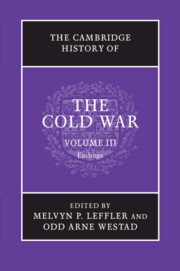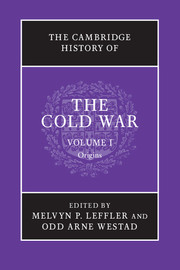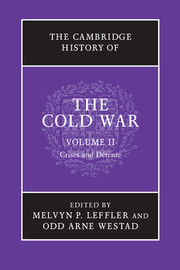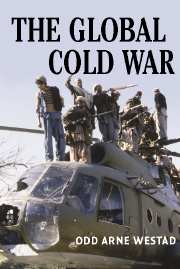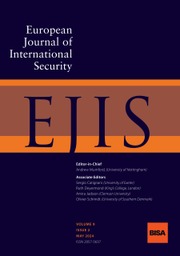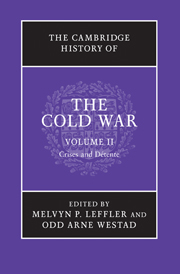The Cambridge History of the Cold War
This volume examines the evolution of the Cold War from the Helsinki Conference of 1975 until the Soviet collapse in 1991. Leading scholars analyze the economic, social, cultural, religious, technological, and geopolitical factors that shaped the policies that ended the Cold War, looking at the personalities and policies of Carter and Reagan, Brezhnev and Gorbachev, Thatcher, Kohl, and Deng Xiaoping. They show how events throughout the world shaped the evolution of Soviet-American relations and also explore the legacies of the super-power confrontation in a comparative and trans-national perspective. Penetrating chapters examine how the Cold War affected and was affected by the environment, the global economy, consumer capitalism, human rights and non-governmental organizations. The authors also deal with demographic trends, capital flows, multilateral institutions, and geopolitical configurations. This is international history at its best: emphasizing social, intellectual, economic and geostrategic trends without losing focus on personalities, politics, and human agency.
- Examines how the end of the Cold War affected and was affected by human rights, public health, capitalism, science and technology, and the global economy
- Sheds new light on the personalities and policies of leaders around the world such as Carter, Reagan, Brezhnev, Gorbachev, De Gaulle, Thatcher, Kohl and Deng Xiaoping
- Analyses events from the perspectives of a range of countries and regions including the US, Japan, China, Central America, Southern Africa, Germany, the Soviet Union, Iran and Afghanistan
Reviews & endorsements
"There has never been a Cold War history like it; everything about it is monumental…. In total, the volumes represent a successful interconnected attempt at describing the Cold War in full." -H-Soz-u-Kult
"Like its two predecessors, the third installment of The Cambridge History of the Cold War (CHCW), is scholar's and instructor's dream for it provides well organized chapters covering major issues in the research of the late Cold War period, all delivered by leading historians in the field.'" -H-Diplo, Dina Fainburg
"a superb collection" -H-Diplo, Robert English
Product details
No date availableAdobe eBook Reader
9781316022658
0 pages
0kg
42 b/w illus. 3 maps 3 tables
This ISBN is for an eBook version which is distributed on our behalf by a third party.
Table of Contents
- 1. The Cold War and the intellectual history of the late twentieth century Jan-Werner Müller
- 2. The world economy and the Cold War, 1970–1990 Giovanni Arrighi
- 3. The rise and fall of Eurocommunism Silvio Pons
- 4. The Cold War and Jimmy Carter Nancy Mitchell
- 5. Soviet foreign policy from détente to Gorbachev, 1975–1985 Vladislav M. Zubok
- 6. Islamism, the Iranian revolution, and the Soviet invasion of Afghanistan Amin Saikal
- 7. The collapse of superpower détente, 1975–1980 Olav Njølstad
- 8. Japan and the Cold War, 1960–1991 Michael Schaller
- 9. China and the Cold War after Mao Chen Jian
- 10. The Cold War in Central America, 1975–1991 John H. Coatsworth
- 11. The Cold War and Southern Africa, 1976–1990 Chris Saunders and Sue Onslow
- 12. The Gorbachev revolution and the end of the Cold War Archie Brown
- 13. US foreign policy under Reagan and Bush Beth A. Fischer
- 14. Western Europe and the end of the Cold War, 1979–1989 John W. Young
- 15. The East European revolutions of 1989 Jacques Lévesque
- 16. The unification of Germany, 1985–1991 Helga Haftendorn
- 17. The collapse of the Soviet Union, 1990–1991 Alex Pravda
- 18. Science, technology, and the Cold War David Reynolds
- 19. Transnational organizations and the Cold War Matthew Evangelista
- 20. The biosphere and the Cold War J. R. McNeill
- 21. The Cold War and human rights Rosemary Foot
- 22. The Cold War in the longue durée: global migration, public health, and population control Matthew Connelly
- 23. Consumer capitalism and the end of the Cold War Emily S. Rosenberg
- 24. An 'incredibly swift transition': reflections on the end of the Cold War Adam Roberts
- 25. The restructuring of the international system after the Cold War G. John Ikenberry.

